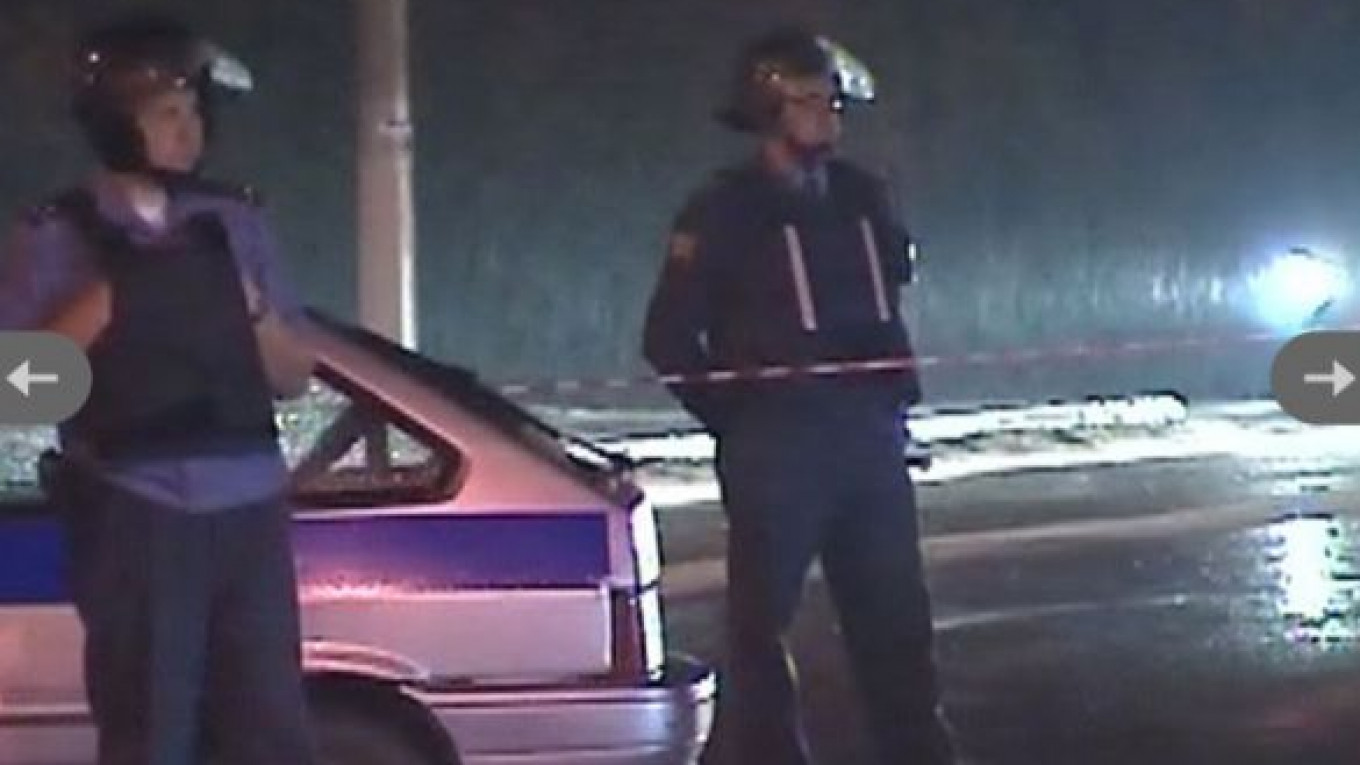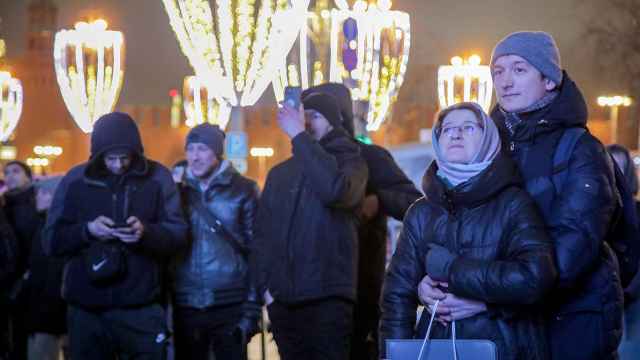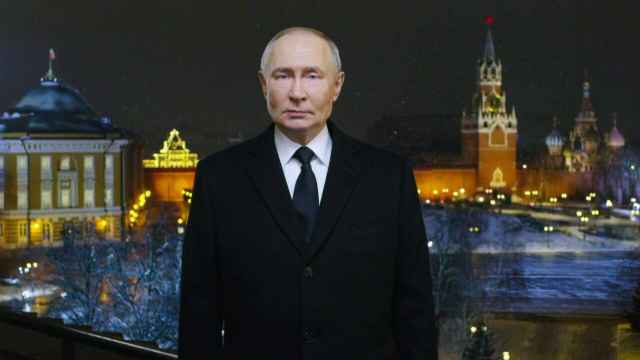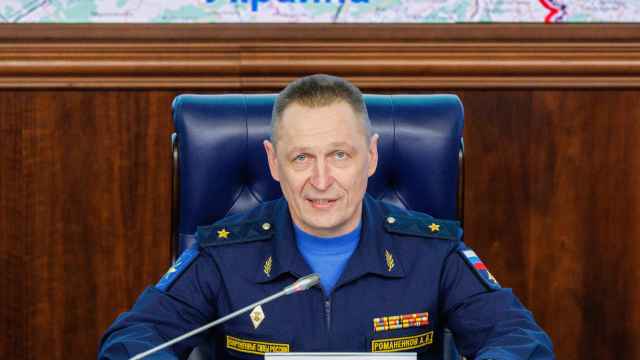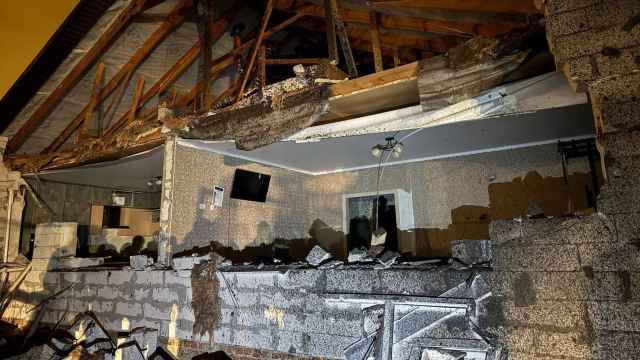Suspected militants targeted this week in a deadly raid outside Moscow as they purportedly plotted an attack on the city received training in the troublesome border region between Afghanistan and Pakistan, law enforcement said Tuesday — an allegation that experts called a reminder of the threat posed by Russian radicals coached and sometimes financed from abroad.
Special forces officers killed two men and detained a third in Orekhovo-Zuyevo, about 80 kilometers from Moscow, in the raid Monday, the National Anti-Terrorism Committee said.
The officers came under fire when they surrounded a house where the suspects were staying and demanded that they surrender. In the ensuing firefight, the officers shot and killed two of the suspects, and captured another, the committee said.
One special forces officer suffered a light wound. There were no civilian casualties.
"The decisive actions of law enforcement agencies foiled an effort to commit a terror attack in the capital," the committee said in a statement late Monday.
The suspects are Russian citizens who returned from Afghanistan or Pakistan, where they received battle training and prepared to carry out terror attacks, the statement said.
The Federal Security Service briefed President Vladimir Putin about the operation and kept him updated about its progress, his spokesman Dmitry Peskov said.
A law enforcement source told Interfax that the men were planning to strike a large-scale public gathering in Moscow. Security officers acted on intelligence data, the source added.
Police discovered a Kalashnikov assault rifle and 25 rounds of ammunition in their home, Interfax said.
Another law enforcement source told Interfax that the men had lived in Pakistan and practiced Islam.
Security officers had kept them under surveillance for a month.
The Moskovsky Komsomolets newspaper identified one of the deceased men as Yulai Davletbayev, a native of the republic of Bashkortostan, a region not normally associated with terrorism. A law enforcement told Interfax that the men had undergone training in North Waziristan, in northwest Pakistan, and might be affiliated with the banned Islamic Movement of Uzbekistan.
Waziristan is a region that security services have called a stronghold of the Taliban.
Militants in the North Caucasus, home to a simmering Islamist insurgency, often cut their teeth in combat zones from Syria to Afghanistan before taking up arms back home, said Nikolai Silayev, a Caucasus expert at the Moscow State University of International Relations.
"Would-be terrorists must be sent to war to become experienced fighters," he said by telephone, adding that there is evidence of Russian fighters in both Syria and Afghanistan.
Maxim Agarkov, a terrorism expert with the SK-Strategia, a think tank focusing on the North Caucasus, said terrorist acts in Moscow in recent years have most likely been funded from abroad, because the Kremlin provides a financial lifeline to the North Caucasus.
"It's not beneficial for them to bomb Moscow, because it gives them money," he said. Most attacks are targeted at local and regional authorities in the North Caucasus, which "steal [federal] money so almost nothing reaches ordinary people," Agarkov said.
While attacks on law enforcement and civilians are near-daily in the North Caucasus, Moscow and the surrounding region has not been hit since January 2011, when a suicide bomber killed 37 at Domodedovo Airport — a fact that Silayev credits to anti-terrorism forces.
Twin bombings outside the headquarters of the court marshals service in Makhachkala, the capital of Dagestan, killed four people and injured more than 50 on Monday, the same day as the Orekhovo-Zuyevo raid.
In a separate operation on Tuesday, security forces killed the right-hand man of Doku Umarov, leader of the outlawed Caucasus Emirate and Russia's most wanted insurgent, during a shootout in the town of Nazran in Ingushetia, the Anti-Terrorism Committee announced in a statement.
Last month's bombing of the Boston Marathon fueled renewed interest in the international implications of the North Caucasus' insurgency after it emerged that the two suspects, brothers Tamerlan and Dzhokhar Tsarnaev, were ethnic Chechens who sympathized with the rebels.
The U.S. and Russia vowed to boost anti-terrorism cooperation in the aftermath of the attack, a pledge reiterated by Interior Minister Vladimir Kolokoltsev during a working visit to the U.S. this week, where's he was scheduled to meet with top U.S. law enforcement officials.
"The Russian government intends to consolidate its forces with the American side to jointly combat this threat," he said in New York, referring to homegrown extremists who train abroad, "primarily in the East," then returning home to wage terror, Interfax reported Tuesday.
But Agarkov, the terrorism expert, suggested that Russia's problems were closer to home. Tens of thousands learned the basic skills of terrorism — how to shoot and make a simple bomb — during Moscow's two bloody wars against separatists in Chechnya in the 1990s and early 2000s.
Contact the authors at [email protected] and [email protected]
A Message from The Moscow Times:
Dear readers,
We are facing unprecedented challenges. Russia's Prosecutor General's Office has designated The Moscow Times as an "undesirable" organization, criminalizing our work and putting our staff at risk of prosecution. This follows our earlier unjust labeling as a "foreign agent."
These actions are direct attempts to silence independent journalism in Russia. The authorities claim our work "discredits the decisions of the Russian leadership." We see things differently: we strive to provide accurate, unbiased reporting on Russia.
We, the journalists of The Moscow Times, refuse to be silenced. But to continue our work, we need your help.
Your support, no matter how small, makes a world of difference. If you can, please support us monthly starting from just $2. It's quick to set up, and every contribution makes a significant impact.
By supporting The Moscow Times, you're defending open, independent journalism in the face of repression. Thank you for standing with us.
Remind me later.


